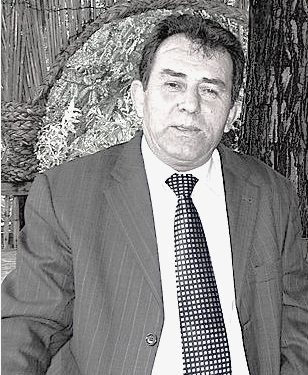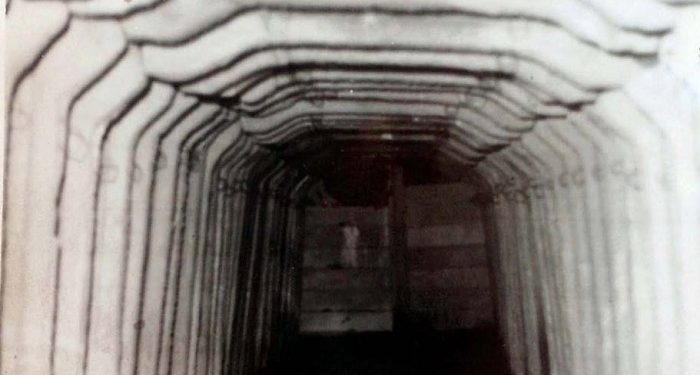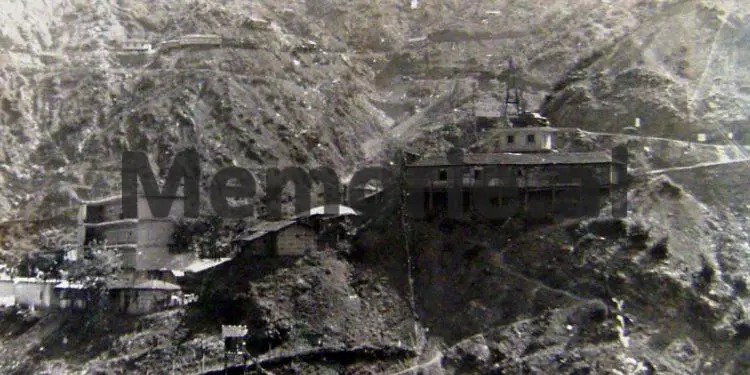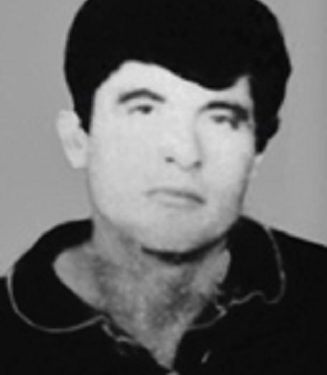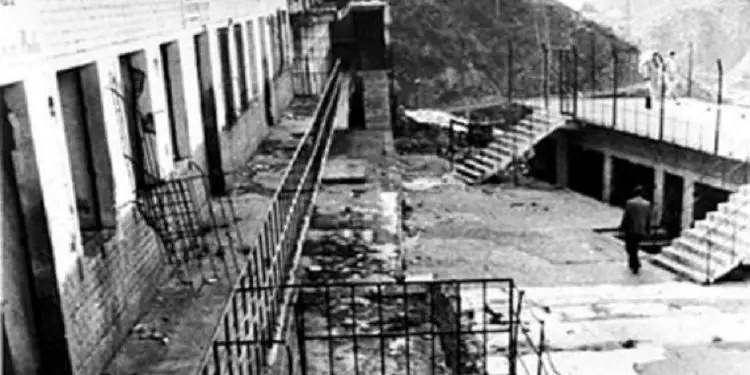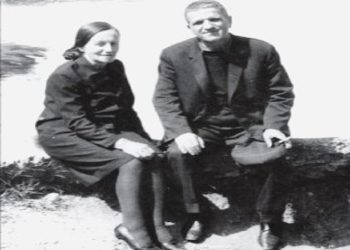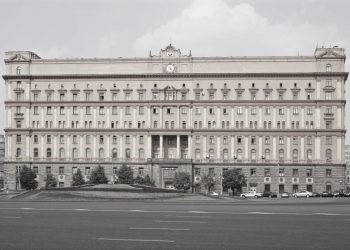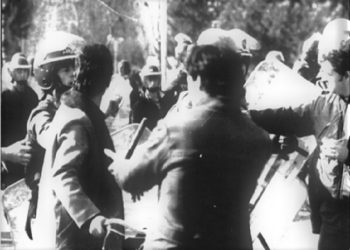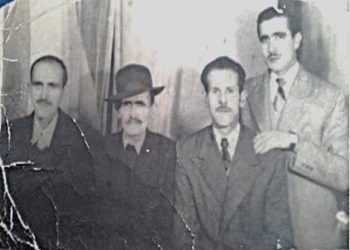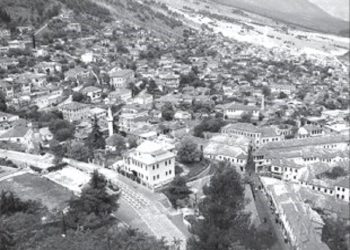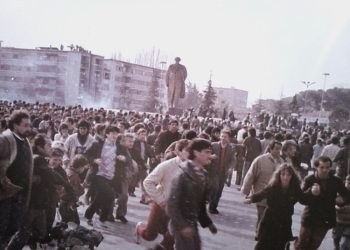By Shkëlqim ABAZI
Part twenty-eight
S P A Ç
The Grave of the Living
Tirana, 2018
(My memories and those of others)
Memorie.al /Now in my old age, I feel obliged to tell my truth, just as I lived it. To speak of the modest men, who never boasted of their deeds, and of others whose mouths the regime sealed, burying them in nameless pits. In no case do I presume to usurp the monopoly on truth or claim the laurels for an event where I was accidentally present, even though I desperately tried to help my friends, who tactfully and kindly deterred me: “Brother, open your eyes… don’t get involved… you only have two months and a little more left!” A worry that clung to me like an amulet, from the morning of May 21, 22, and 23, 1974, and even followed me in the months after, until I was released. Nevertheless, everything I saw and heard during those three days; I would not want to take to the grave.
Continued from the previous issue
“The stranger quickly won the sympathy of the Democratic rascals who were ready to overturn the bar with all the alcoholic and soft drinks for a good word in favor of the party of their heart. The militants moved the tables, took the beer bottles or coffee cups, and joined the stranger, whose name they didn’t even know, but who became more preferred than even the everyday customers. Oh God, how the conversation was boiling, although no one mentioned a name! But politics doesn’t care about names!
Sympathizers and militants of parties are the strangest individuals, similar in habits but different in convictions; Siamese twins with one brain but two faces; with snouts like sheep but whims like goats; delusional fans, but with the scarf of their favorite team; sick people who quickly become friends with those similar to them, but instantly become enemies with opponents.
At a rally of hundreds of thousands in the capital, I happened to see my fellow citizens kissing and hugging people from Shkodër, Korçë, Kukës, Konispol, Tropojë, Sarandë, Dibër, and Vlorë – they embraced everyone they met!
Faced with this sight, I was reminded of ninety-one, when we founded the Association of Former Political Prisoners. But we came from the “Murdallëk” prisons and camps, where we had lived for years and decades and suffered immensely. Happy that we lived to see the day, to see a comrade alive after all that ordeal, we were emotional, we wept, we kissed, and we shed tears.
‘Where did these people meet, and what suffering must they have escaped?’ ‘What hell must they have survived?’ My travel companions on the bus would quench my curiosity.
‘You didn’t leave anyone unkissed, Dane, look how they’ve covered you in slobber!’ I nudged the man next to me.
‘We missed each other, man!’ he replied.
‘Where did you meet all these people?’
‘They are old friends!’
‘Were you soldiers?’ I regretted the foolishness, because they didn’t match in age.
‘Friends, I told you!’
‘High school comrades, boys and girls?’—because I noticed he met and kissed women too.
‘Man, I thought you were smart, but you’re an idiot!’ one of the people in the front seat burst out at me.
‘Don’t insult my friend!’ Dania defended me. ‘After all, he asked a harmless question!’
‘But what else should I tell him? Who in the world could have had a hundred thousand high school or army comrades? Even if you did ten high schools or twenty years of military service, you couldn’t make that many friends!’
‘It seemed like you met very emotionally!’ I defended myself.
‘Undoubtedly, we would meet with longing, because we don’t meet every day, like with your lordship!’
‘Agreed, but where did you meet closely?’
‘At rallies, you simpleton, where else?! We are Democrats, bless you!’
‘I am a Democrat too, but…!’
‘You are, you are, but not like us!’
‘Why are we different?’ I asked, taken aback.
‘Because you, as a gentleman, don’t even kiss your wife!’ The bus roared with uncontrollable laughter.
‘I didn’t mean to offend you, I asked out of curiosity!’ I tried to close the topic.
‘Why is it a condition to know each other by first and last name? Even without knowing each other at all, the ideal unites us, because we are brothers and sisters of the Party! Did you understand?’
‘I understood!’ I kept quiet.
The stranger was lecturing; his companion didn’t utter a word. He answered everyone simultaneously without hesitation.
‘Are you from around here?’ someone asked him.
‘No, my wife is from here.’
‘From which tribe/family?’
‘I am this communist’s baxhanak (wife’s sister’s husband)!’ and he pointed his finger at our acquaintance.
‘This one is a pure leftist!’
‘No, no!’ the agronomist baxhanak defended himself.
‘And your wife is also a communist breed!’ my drinking companion accused him again.
‘Well, we won’t leave our wives now!’ the agro-merchant defended himself.
‘Where do you live?’ he addressed the stranger.
‘In Greece, I have been an emigrant for fifteen years.’
‘Have you returned for vacation?’
‘Vacation, my man, for voting! We will break the communists’ noses!'”
““Ah-a-a, that’s great, good for you!”
“I will vote on the third, and on the fourth of July, I will return to Greece.”
“Good, but keep your eyes open so she doesn’t cheat on you, as she is across the border!” another person nudged him.
“I have her with me, man!”
“Trust and verify, said the late Stalin!”
“I f*ck her mother! By God, if she does that, I’ll leave her immediately!” he spoke in pure Tirana dialect.
“Do you know anyone in Berat?” the person who asked earlier changed the subject.
“I know some, but it’s been a while since we saw each other, and I fear the years have taken their toll.”
“Who do you know, for example?”
“Well, some have died in time; those who are alive are old people like me.”
“Life continues even without them!” the interlocutor philosophized.
“But, for example, I know Petrit Nallbani, Pavllo Lako, Luftar Çala, Shkëlqim Abazi…!”
“Who, man?” the interlocutor interrupted him and stared at me.
I hadn’t intervened until that moment, but when he mentioned me, I looked at him closely.
He was approximately the same age, stout-bodied, slightly hunched, prematurely gray and sparse hair that revealed a prominent forehead, a slightly elongated face, with a flattened nose and a jutting chin.
The flat head with a tendency to be long reminded me of an acquaintance from the prison years. I got up under the pretext of going to the bathroom, but I wanted to meditate in peace. A friend followed me.
“Go back and don’t reveal me.”
“Why, who is it?” he asked curiously.
“If I’m not mistaken, Dashnor Kazazi, a man from Tirana!” and I entered the bathroom. As soon as I returned, I asked him: “If they faced you, would you recognize your friends?”
“I don’t know, I would definitely recall them!”
“As soon as Petrit came out, did you recognize him?”
“No, who was it?”
“The one with the ear-to-ear mustache!” someone chimed in and added: “And Shkëlqim, do you know him?”
“I think so!”
“Has it been a while since you met him?”
“Oh-u-u, since seventy-three.”
“Where did you meet?”
“In Spaç!”
I let him squeeze out the conversation with the others.
“You were in prison too!?” they asked him.
“Yes, nineteen years!”
“For what, man?!”
“For politics!”
All attention focused on the stranger.
My friends were talking and occasionally casting sly glances at me, perhaps waiting for my reaction.
“I thought you were dead, Dashnor!” I revealed myself.
“Who are you?”
“A survivor of those years.”
“Shkëlqim Abazi!” one of the groups hastened to say.
“Wow-a!”
He jumped from the chair as if he were sitting on a spring, remained suspended for a second, then lunged out, looked at his baxhanak as if waiting for approval. When he was silent, he scratched his head and stared at me as if peering at the invisible, opened his arms and threw himself around my neck:
“Oh God, over thirty-three years have passed!” and he collapsed, exhausted. Someone cleared the chair next to me for him.
“How are you, Dashi?” I asked out of custom.
“Alive, thank goodness!”
“I’m glad! You escaped death thirty-three years ago.”
“You too!”
“God spared us!”
“May we be under His rule?”
The meeting spurred the curiosity of the onlookers, who stopped their conversations and started asking questions: how we knew each other, where we met, and how we survived the “turbulence of the communist destructive tsunami.”
The conversation lasted until after midnight.
The others ate dinner at Dashi’s brother-in-law’s place.
When the owners pleaded with us that they would close the bar, we parted to meet the next day. I skipped work that day and was at the bar at the appointed time.
Dashi arrived accompanied by a woman with optical glasses and a girl about ten or twelve years old; he broke away from them, but stopped and turned his head toward the female companions before reaching the table, pointing his finger at me:
“There he is!” He rushed toward me with open arms like the previous evening. “Come on!” The female pair also approached. I got up to make room for them, but the woman with glasses and excessively magnified eyes stopped me with gestures:
“We can’t stay, because my sister is waiting for me; we only returned to meet you.”
Meanwhile, in the girl’s gaze, attraction, curiosity, friendliness, closeness, distance, courage, hesitation, trust, disbelief, hope – everything a child’s eyes can express at that age – were mixed.
“The women of my life!” Dashi presented them to me with the pride of a Jewish man. “My wife and my daddy’s little sweetie!”
“I am glad to meet your family!”
“Oh-u-u, who could have believed we would reach this day?”
“God is great! How are you, madam, how is your husband, your daughter?” I greeted the wife.
“Like in exile, brother!”
“Don’t worry, because a quarter of Albanians are in exile!” I tried to console her.
“It is difficult, far from the homeland!”
“A heavy stone belongs in its own place!” I wanted to lighten her burden with this overused idiom.
“Exile is a great sorrow, but health above all!”
“Thank goodness we lived to be free and without any restrictions!” I couldn’t help adding, although I was convinced I was spouting nonsense: “If you don’t like it there, come back!”
“Easy to say, but where will we drown? Without a home, without belongings, without prospects… Oh-u-u!” In her eyes, I read disappointment. “Forgive us, but we will leave you to catch up!” and they left.
(Although the Kazazi family considered returning, to this day, they continue to live in Greece!)
We settled down.
“How have you spent all these years?” I asked him.
“How can I say, I left to realize a dream, and I remained there!”
“Where do you live?”
“In Athens.”
“How are things going?”
“I’m getting by somehow!” He shook his head a couple of times and added: “I feel very weak, my friend!”
“Why?”
“I don’t know how to explain it; emigration is a bitter bite. That free world we dreamed of in the cell is not as free as we thought! While we ran to embrace freedom, the Greeks treated us like criminals. A reality that kills, national insults, racial contempt, moral denigration, intellectual scorn, professional devaluation, megalomaniac venting, religious discrimination; I felt miserable, so much so that in moments of depression I expressed: ‘May the prison take the badness away from me, may the police take me;’ but these moments of heartbreak did not weaken me enough to express myself out loud.”
“I know, I’ve experienced it myself!” I interrupted him.
“You were in emigration too?”
“Not once. I closed the door on that!” – and he fell silent as if to say: “Okay, fill in what I didn’t say!”
“Excluding the bad things, I believe the sacrifice we made was worth it, because we gained the freedom of thought, of speech, of movement, of idea, of belief; above all, there are no more ideological shackles and political censorship. Naturally, when you face a kleptocratic system and social chaos, which should not happen in a democracy, you cannot feel good, but Rome was not built in a day, so let us hope and contribute for a better tomorrow, for our children.”
“You are right, we who sacrificed a lot must value freedom even more!” he agreed and added: “When I recall the years of misery, the time when they compared us to mangy dogs…!”
“…they crippled us mentally and physically, and even when you escaped the prison or the policeman, you were choked by the bitterness that you couldn’t vent; you would double over from the resentment and be left breathless,” I completed his thought.
“Lord, oh Lord, what we suffered!”
“For years, a dilemma has tormented me: how did you, who were taken away tied up that day, manage to survive?” I seized the opportunity to hear from the mouth of a protagonist about the horrors of the post-revolt period and the drastic sentences.
“It was not meant for all of us to die!” He paused: “Perhaps to testify to the horrible crimes!”
“I wanted to know what happened to you.”
“You were there!”
“Certainly, but not in your role!”
“Everyone played the role that fell to them!”
He made a hand gesture, as if to say: “Eh, that issue has been closed in due time!” “Certainly, but not everyone was active!” I intentionally provoked him.
“I’m not talking about the spies! Hang them!”
“The years have muddled my thoughts; do you remember when we last met?”
“The evening of the twenty-second. You had a canteen…”
“Ramë Tahiri from Rugova made it for me,” I interrupted him.
“Exactly, the canteen was empty; I wanted water…”
“Because they cut off the water supply on the first day…”
“And you took out a flask for me, I drank half, and…”
“It’s coming back to you!” I interjected again.
“Then I told you: ‘Be careful, you only have two months left!’”
“Naturally, I remember that!”
“You were on the verge of release; I advised you not to draw attention to yourself, while the rest of us, even if we were punished a second time, it didn’t matter; we had ten years and up.”
“Then we never saw each other again!”
“The next day, what we know happened, and God brought us together after thirty-three years,” he concluded.
“No, not everyone knows; the tragedy of that day remained a mystery, and the truth reached our ears distorted,” I countered, convinced of the accuracy of what I had just said.
“What mystery, man! What you saw happened! They took us straight to solitary confinement, in the afternoon to the special trial, some to the firing squad, others twenty-five years, and they rotated us again in the hell of Burrel.”
“That’s what interests me!”
“Well then, I will tell you:
“When you were taken out tied up, onto the square below the command, we waited for the punishment on the terrace. Although we knew the consequences, that’s how our mind dictated it; we were young, and partly due to age, partly ego, partly pride, partly idealism, we did what we did. Dead as dead, let’s die by confessing to the world why we are dying!
“That’s how Skënder and I decided in the evening; we would resist as much as we could and then self-immolate from the top of the building because we didn’t want to fall alive into their hands. In the morning, Dervish came with some others. As we weighed it – that it wasn’t worth sacrificing all of us, and that the act of a few was conveying the message – we convinced them to leave. So Dervish also remained with us. A little before they finished with you, Jorgo Papa climbed onto the terrace. This unexpected arrival stunned us. ‘Jump down, Jorgo!’ I yelled at him.
‘No, I will die here!’
‘That’s an excessive sacrifice!’ Dervish told him.” Memorie.al
Continues in the next issue




